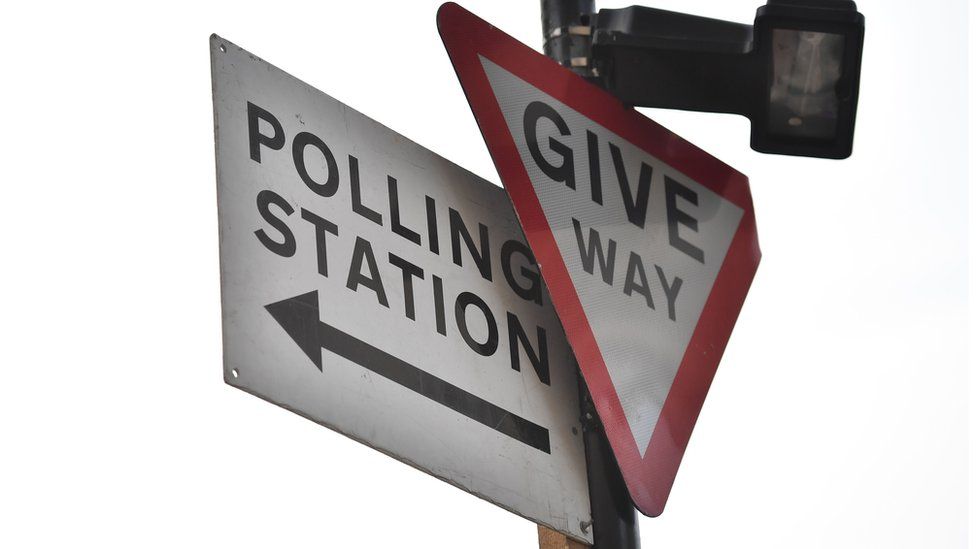Lancashire councils could see impact of 'toxic' politics and turnout
- Published

Whilst most politicians are currently focussed on Whitehall, all eyes in Lancashire are on the town halls.
All 12 of the county's borough, district and city councils are up for grabs in one way or another - as are the two unitary authorities - with some councils only electing a third of their members this time, while others go all out.
Both systems have advantages and disadvantages.
If an authority has a smaller kind of election every year, it becomes easier to spot trends, but for councils with complete elections every four years, the stats are more robust as there tends to be fewer outliers - candidates whose popularity effectively runs ahead of their party.
Regardless of the systems though, in some parts of Lancashire, just one seat can make all the difference.
'Toxic' politics
Pendle Borough Council, for example, is on a knife edge. The Conservatives currently run the council with a majority of one but they only managed that following a national scandal.
The waters are further muddied by the current leader, Paul White, quitting politics.
Whilst he's "officially" too busy with other projects to continue, I understand the "toxic" nature of local politics had a large part to play in the decision.
That is an issue which stretches across the county.
South Ribble Borough Council has been mired in controversy over the past few years.
First came a report which highlighted "serious concerns" over the authority's taxi licensing and handling of two child sex abuse claims and then the leadership of the council's chief executive came under scrutiny after criticism of her management style.
More recently, the authority has been likened to a "merry-go-round" with five different leaders in three years.
Now, with accusations of dirty tactics from all sides, each of the 50 councillors will have to fight for their seats in an authority where the ruling majority is just two.
However, it is not just be local issues in voters' minds.
Edge Hill University's senior lecturer in politics, Paula Keaveney, says national issues will be just as important.
"Back in 2015, there was a general election on the same day.
"This saw a choice between David Cameron's Conservatives and Ed Miliband's Labour.
"This time, the parties are very different and, of course, we have seen how these parties have dealt with the Brexit question."
Skelmersdale surprises
Some councils - like Fylde, Wyre and Ribble Valley - will never shift from Tory control, while others - like Burnley, Blackburn and Blackpool - are unlikely to be anything other than Labour-run.
For the rest, almost anything is possible and given the current national political climate, we could be in for some surprises.
Could the Lib Dems surge in their Pendle heartlands? Could UKIP capitalise on anti-EU feelings in Hyndburn? Could the Greens increase their seven seats on Lancaster City Council?
Maybe the surprise will come from the new kids on the West Lancashire block.
After only officially registering their party earlier this year, the Skelmersdale Independent Party says they are hoping to be a "group of independent councillors that work together… on a non-partisan basis".
Ms Keaveney says elections in West Lancashire are "often two-party contests" between Labour and Conservative, so the potential for a new third party with a strong local identity coming through is there.
"West Lancashire has also seen the emergence of the Our West Lancashire party, which has picked up seats elsewhere in the borough," she adds.
But are we over-thinking things? Take Pendle as an example. The balance of power 12 months ago was decided by just 41 votes in one ward.
Given the myriad of different issues for voters to consider this time around, the biggest deciding factor on 2 May could simply be the turnout.
- Published9 April 2019